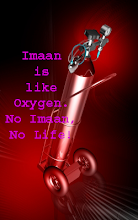(REFER TO AHADITH 7 to 12 IN THE TEXT BOOK)
Read the following Ahadith and answer the questions that follow:
1. No sin is more swiftly punished than oppression and the breaking of family ties.
a. What is a sin? Sin is a deed the doing of which pricks one’s heart, and one doesn’t want others to know about it.
b. What do you mean by ‘no sin is more swiftly punished than oppression and the breaking of family ties’?
It means Allah is quicker to punish those sinners who commit oppression, and indulge in breaking the family ties.
c. What is oppression? Oppression is tyranny. It is to treat people with harshness and cruelty. It is also to deny and violate the rights of others.
d. What is meant by breaking of family ties?
It is the severing of family relationships.
e. The person who breaks the family ties, will he go to Paradise? Why?
No, he won’t because the Prophet صلى الله عليه وسلم once said, “the one who severs family relationships will not enter Paradise”.
2. “There are three things which save and three things which destroy: Those which save are: Fear of Allah in secret and in public, moderation in poverty and in wealth, and speaking the truth whether angry or calm. Those which destroy are: passion which is pursued, avarice and self-admiration”.
a. What do you mean by ‘moderation in poverty and in wealth’? It means adopting and maintaining balance & moderation in spending one’s money, be it in poverty or in plenty.
b. What is avarice?
Avarice is to have an extreme desire for riches and to be greedy of wealth.
c. What is meant by ‘passion, which is pursued’?
It is a continuous involvement and showing of interest in the feelings of love, hate or anger. For example, a person who has great enthusiasm in pursuing a path of lust or sex is said to have a passion for sex.
d. What is self-admiration and why is it a cause of one’s destruction?
Self-admiration is to take pleasure in talking about oneself or boasting about one’s personality, achievement or abilities. It is to have pride and satisfaction in oneself. The self-admirer thinks that he exists on his own and that he can do without the help of Allah. This ungratefulness nature will lead him to destruction.
3. “On the Day of Judgement no step of a servant of Allah shall slip until he has answered concerning four things: 1. His body and how he used it 2. His life and how he spent it 3. His wealth and how he earned it, and 4. His knowledge and what he did with it.”
a. Mention the four things about which every person will have to give account of on the Day of Judgement?
The four things are: 1. His body and how he used it 2. His life and how he spent it 3. His wealth and how he earned it, and 4. His knowledge and what he did with it.
4. “When a person dies, his deed come to an end except in respect of three matters which he leaves behind: A continuing charity, knowledge from which benefit could be derived and righteous children who pray for him”.
a. Explain the above-mentioned hadith.
This hadith tells us in clear terms that after a person’s death, his Book of Deeds is closed but for three things which he leaves behind him in this world. That is, the rewards of these three things will be credited in one’s Book of Deeds even after one’s death. The three things are i) A continuing charity ii) beneficial knowledge and iii) righteous children’s supplication for their deceased father or mother.
b. What is meant by ‘a continuing charity’?
It is called ‘sadaqah jaariyah’, that is a charity whose benefits people continue to reap even after one’s death. For example: A Muslim built a mosque or planted a tree. After building the mosque or planting a tree he dies. The mosque or the tree is of use and benefit to others. The rewards of people praying in the mosque or drawing benefit out of the tree will go to that Muslim.
5. “The generous person is near to Allah, near to men, near to Heaven, far from Hell-fire. The miser is far from Allah, far from men, far from Heaven, near to Hell-fire. And ignorant person who is generous is better in the sight of Allah than the worshipper who is miser”.
a. What is the Prophet trying to emphasize in this hadith?
In this hadith, the Prophet Muhammad صلى الله عليه وسلم is motivating Muslims to adopt generous attitude in them and to shun miserliness. He is emphasizing that generosity and kind-heartedness will lead a person to Paradise and miserliness could take him to Hell-fire.
6. “Whoever desires to become the strongest of men, let him put his trust in Allah”.
a. How can a Muslim who puts his trust in Allah become strongest of men?
A Muslim who puts his trust in Allah is relieved of worries, anxiety and pessimism. He is free from hopelessness. He feels satisfied in what he does because he is confident that his Almighty Lord will help him in his endeavors. Trust in Allah makes one physically, mentally and emotionally stronger.
بسم الله والصلاة والسلام على رسول الله Assalamu Alaikum wa Rahmatullah….. I
have been working on this file for quite some time – added extra pages and
upda...


















